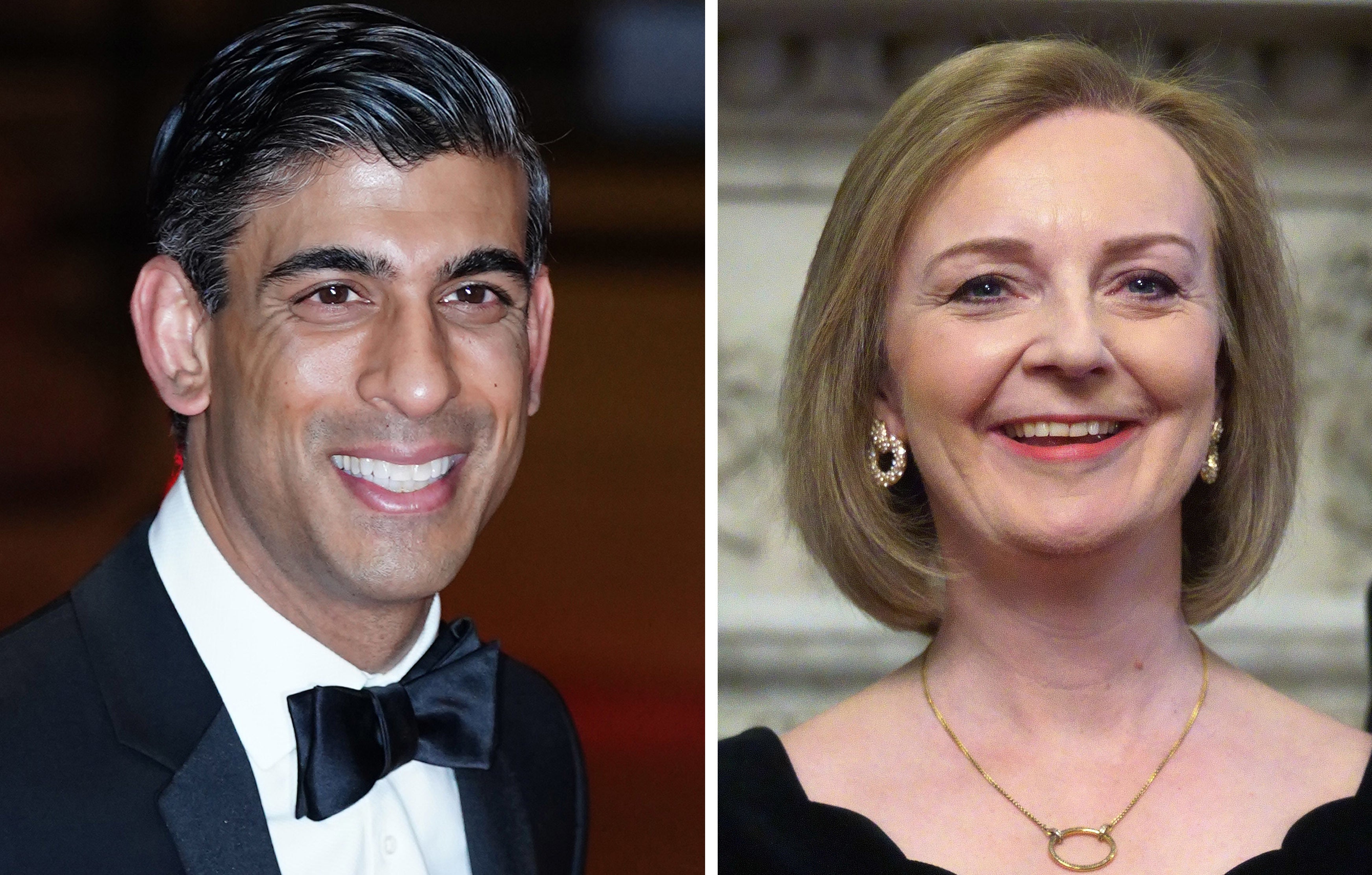Who is going to be the next prime minister?
With the candidates to succeed Boris Johnson down to two, John Rentoul looks at the issues likely to decide the final stage of the Conservative leadership election


Liz Truss is the early favourite in the betting market. Immediately after the result of the final ballot of Conservative MPs, in which she easily leapfrogged Penny Mordaunt to make it into the last two candidates, Truss was given a 60 per cent chance of taking over as prime minister on 6 September.
The betting reflects opinion polls of Conservative Party members, who will start voting to choose between Truss and Rishi Sunak on or around 1 August. A YouGov survey of party members on Monday and Tuesday this week put Truss substantially ahead of Sunak, by 19 percentage points.
A Conservative Home survey, which is self-selected but has been accurate in the past, put the gap between them at just seven points at the weekend, although it had been wider a few days earlier. What both surveys suggest is that opinion among Tory members is volatile and could be influenced by what they see of the two candidates over the next six weeks, but especially over the next 10 days, given that many votes will be cast online as soon as the ballot packs arrive.
Hence the importance of the BBC TV debate on Monday. That will be when Sunak will hope that his stronger performance in the debates so far will persuade party members – although he will have to be careful not to be too aggressive, because members didn’t like the candidates tearing into each other in the two debates so far.
The key to this contest, in my view, is whether Tory members look forwards or back. At the moment they are bruised by tax rises and the supposed betrayal of Boris Johnson. The outgoing prime minister made his view pretty clear at his final Prime Minister’s Questions today, with a gratuitous attack on the Treasury.
Indeed, Johnson has made his view clear ever since he promoted Truss to foreign secretary in September as a counterweight to an overwhelmingly popular chancellor. This is a paradox, because Johnson was proud of furlough and the help for vulnerable people with their energy bills, and was keener to spend the money than Sunak ever was.
Sunak has done a good job in the TV debates so far of pointing out the fantasy economics of Truss’s huge tax cuts and big spending promises on defence. We can look forward to some social media adverts from Sunak portraying Truss as a helpless astronaut spinning into a black hole of debt. But party members may want to believe in fairytales.
The other fairytale about the recent past is the “Boris Johnson was betrayed” theory. It is nonsense, but a lot of Tory members believe it. Hence the petition backed by Peter Cruddas, the Johnson loyalist Tory donor who was made a peer against the advice of the House of Lords Appointments Commission, to put Johnson’s name on the ballot paper at this late stage. The petition has been signed by not many more than 1 per cent of Tory members, but a Conservative Home survey suggests that about one-third of party members wanted Johnson to stay on as prime minister despite the waves of ministerial resignations.
To keep up to speed with all the latest opinions and comment sign up to our free weekly Voices Dispatches newsletter by clicking here
These are powerful backward-looking forces. Sunak’s aim, however, is to try to focus party members on the future. He has to persuade them that the Conservatives would do better led by him at the next general election against Keir Starmer. That is what the opinion polls of the general public show – although the Truss campaign argues that they simply reflect Sunak’s higher name-recognition.
More importantly, perhaps, Starmer himself would rather face Truss at the next election. There is no doubt that most Labour people would rather face her, in the belief that she could be portrayed as the harbinger of a heartless austerity. Sunak is a tougher opponent, as the chancellor who chose higher spending on public services and protecting jobs and helping with vulnerable people’s cost of living.
The longer the campaign goes on, the more Tory members are likely to focus on who will win them the next general election. Will enough of them do so by the first week of August to win it for Sunak?
Join our commenting forum
Join thought-provoking conversations, follow other Independent readers and see their replies
Comments
Bookmark popover
Removed from bookmarks